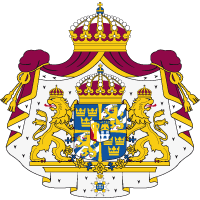Cookies
The Swedish Act on Electronic Communications (SFS 2003:389) requires information to be provided about whether and how cookies are used on websites. Here is a general explanation of what cookies are and how the Royal Court's website uses cookies.
What are cookies?
A cookie is a small text file containing information which the web server you visit saves in your browser. Cookies are used on many websites to give a visitor access to various functions. The information in the cookie can be used to monitor a user's surfing, for example.
Two types of cookie
There are two types of cookie, one type, a permanent cookie, saves a file on your computer for a long time. This is used, for example, for functions that tell you what is new since you last visited that particular website.
The other type of cookie is called a session cookie. While you are surfing a website, this cookie is saved temporarily in the memory of your computer, for example to keep track of which language you have chosen. Session cookies are not stored for long on your computer – they disappear when you close your web browser.
How the Royal Court's website uses cookies
The Royal Court's publication tool, SiteVision, only uses temporary cookies (session cookies), including to deal with access rights. This information disappears automatically when you close your browser.
No personal information about visitors will be saved.
Settings to avoid cookies
You cannot prevent other websites from sending cookies to your browser. However, you can change the settings for how your browser (the program you use when surfing) accepts and saves cookies.
Read the help files for your browser to find out how to change these settings.









